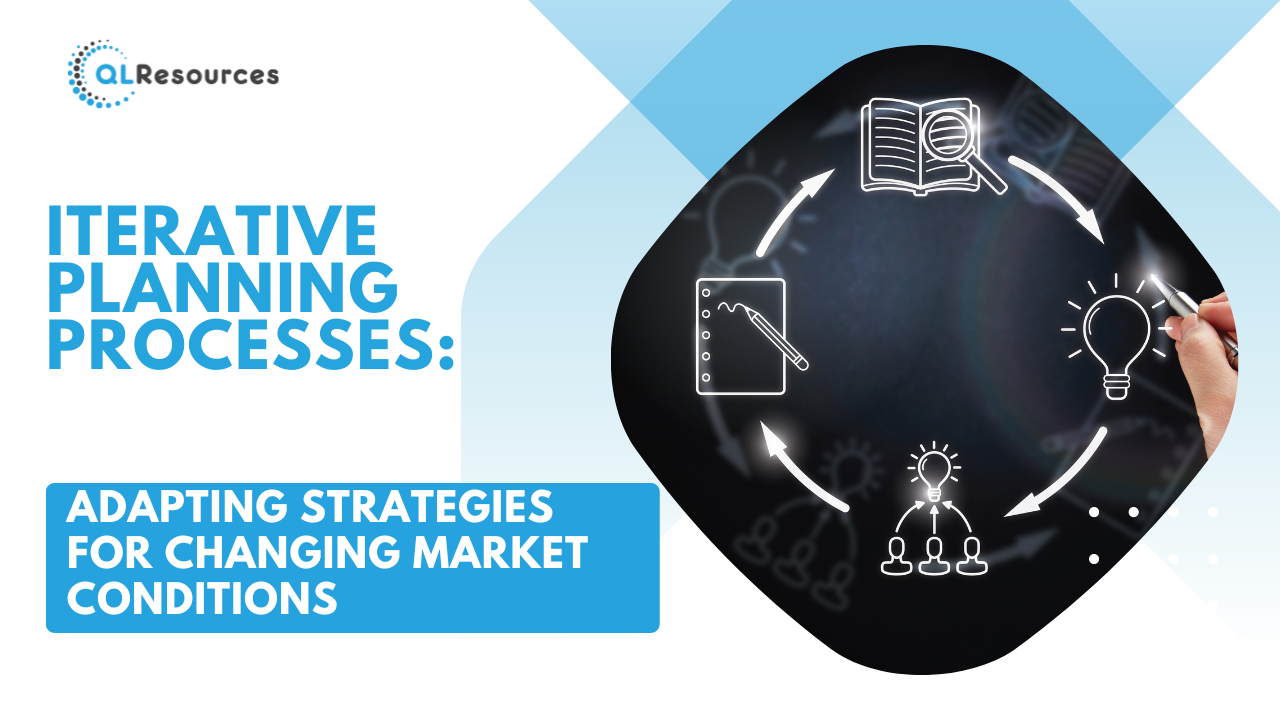
In today’s dynamic business environment, companies face constant changes in market conditions, customer preferences, and competitive landscapes. To navigate these uncertainties effectively, businesses must adopt iterative planning processes that enable them to adapt their strategies in response to evolving circumstances. This article explores the concept of iterative planning, its benefits, and strategies for implementing it to drive business success in an ever-changing market.
- Iterative planning is a flexible and adaptive approach to strategic management that involves continuous refinement and adjustment of plans based on ongoing feedback and learning. Unlike traditional linear planning methods, which follow a fixed sequence of steps, iterative planning embraces uncertainty and acknowledges that plans may need to evolve over time to remain relevant and effective.
- Iterative planning offers several advantages over traditional planning approaches:
- Flexibility: Iterative planning allows businesses to adapt quickly to changing market conditions and seize new opportunities as they arise.
- Responsiveness: By soliciting feedback from stakeholders and customers, iterative planning enables businesses to respond rapidly to emerging trends and customer needs.
- Learning and Improvement: Iterative planning fosters a culture of continuous learning and improvement, as organizations gather insights from each iteration and apply them to refine their strategies.
- Risk Mitigation: By breaking down plans into smaller, manageable iterations, businesses can identify and mitigate risks more effectively, reducing the likelihood of costly mistakes or failures.
- Innovation: Iterative planning encourages experimentation and innovation, as businesses iterate on ideas and test new approaches to drive growth and competitiveness.
- Iterative planning typically involves the following components:
- Setting Goals and Objectives: Establish clear and measurable goals that align with the organization’s mission and vision.
- Iterative Development: Break down strategic initiatives into smaller, iterative cycles or sprints, each focused on achieving specific objectives.
- Feedback and Evaluation: Solicit feedback from stakeholders, customers, and team members at regular intervals to assess progress, identify challenges, and gather insights for improvement.
- Adaptation and Adjustment: Based on feedback and evaluation, adapt plans and strategies as needed, making course corrections to stay on track toward achieving goals.
- Continuous Learning: Encourage a culture of continuous learning and improvement, where lessons from each iteration inform future planning and decision-making.
- To effectively implement iterative planning processes, businesses can adopt the following strategies:
- Embrace Agile Principles: Incorporate agile methodologies, such as Scrum or Kanban, to facilitate iterative planning and execution of projects.
- Foster Collaboration: Encourage cross-functional collaboration and communication to ensure alignment and shared understanding of goals and priorities.
- Prioritize Feedback: Actively seek feedback from customers, employees, and other stakeholders to inform decision-making and drive continuous improvement.
- Iterate Quickly: Aim for short iteration cycles to maintain momentum and responsiveness, allowing for rapid iteration and adaptation to changing circumstances.
- Measure Progress: Establish key performance indicators (KPIs) and metrics to track progress and evaluate the effectiveness of iterative planning efforts.
- Embrace Experimentation: Encourage experimentation and innovation by creating a safe environment for testing new ideas and approaches, and learning from both successes and failures.
- Provide a real-world example of a company that has successfully implemented iterative planning processes, highlighting the benefits and outcomes achieved through this approach.
Conclusion: Iterative planning is essential for businesses seeking to thrive in today’s fast-paced and unpredictable business landscape. By adopting a flexible and adaptive approach to strategic management, businesses can respond quickly to changing market conditions, drive innovation, and achieve sustainable growth. Through continuous feedback, adaptation, and learning, organizations can iterate on their strategies and stay ahead of the competition in an ever-evolving marketplace.
© 2024 QLResources All rights reserved.